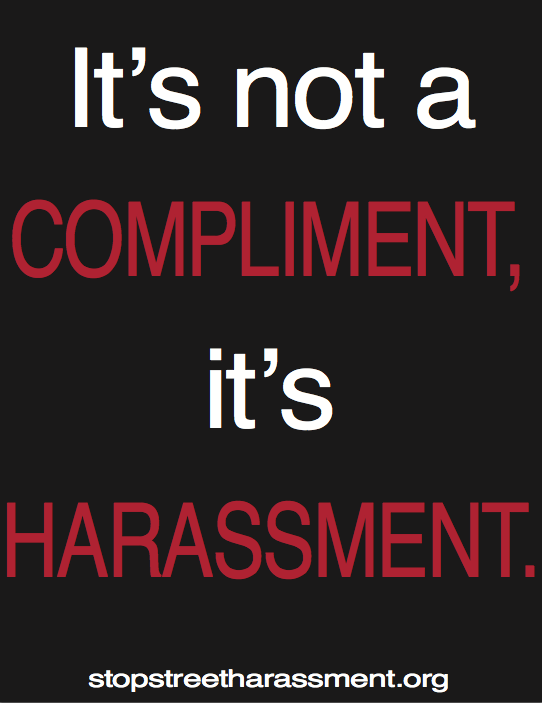By: Tilly Grove, London, England, SSH Correspondent
 When people talk about the street harassment of women and the street harassment of the LGBT community, it is not always acknowledged that whilst sexism and homophobia are different oppressions, they meet at a significant intersection, too. This phenomena, known as lesbophobia, sees lesbian and bisexual women subjected to abuse that although certainly fueled by bigoted views regarding sexuality, has a distinctly misogynistic tone to it as well. It is a very tangible reality for many lesbian and bisexual women, as the Everyday Lesbophobia project endeavours to document.
When people talk about the street harassment of women and the street harassment of the LGBT community, it is not always acknowledged that whilst sexism and homophobia are different oppressions, they meet at a significant intersection, too. This phenomena, known as lesbophobia, sees lesbian and bisexual women subjected to abuse that although certainly fueled by bigoted views regarding sexuality, has a distinctly misogynistic tone to it as well. It is a very tangible reality for many lesbian and bisexual women, as the Everyday Lesbophobia project endeavours to document.
Of course, women who are perceived to be intimate with other women still face the same hostility, threats and actual violence that the LGBT community face generally. But they also receive harassment of a different kind, which is not just underpinned by the assumption that only heterosexual relationships are natural or legitimate, but that this is the case because women exist for the pleasure of men.
Having asked on Twitter for women to share their experiences on the matter, I immediately had a woman describe how she and her partner had been accosted in the street by men declaring that a “good f**k would sort them out” – implying that lesbian relationships are not real, that there is something wrong with them, and that a man can ‘fix’ it. This incorporates the homophobic belief that same-sex relationships are inferior to heterosexual relationships into the idea that all women do and should want men, and that men are entitled to each and every one.
The men making these kinds of comments probably think that they are making a joke, in an attempt to reassert the masculine dominance undermined by a woman not being interested in them, but it has very real implications. Corrective rape is a threat for lesbian women across the world. Some men are so sure that a “good f**k” will make lesbians interested in men that they give it to them, forcibly and without consent. All it actually does is cause unnecessary harm, fear and possibly lead to death. That’s no joke.
It doesn’t help that lesbian sexuality is heavily constructed in the public perception to cater for male consumption. This is no surprise; all women are portrayed in the patriarchy as a sexual conquest of some kind. But for lesbian and bisexual women, the fetishisation of their relationships in anything from pornography to sitcoms means that in public they are treated as novelties, or masturbatory tools. Women intimate with each other in public are cheered on, jeered at, and openly leered upon, with tales of male harassers doing everything from asking if they can join in to actually masturbating.
Any woman who strikes up the courage to protest this objectification is invariably told that “they know it’s hot” and thus, apparently, cannot complain. This is entitlement to the extreme – the idea that lesbian and bisexual women must accept threatening behaviour and invasions of their privacy because men are used to viewing images of their relationships for pleasure. As if this is the natural way of things.
All the while society and its institutions present women as things for men to play with, and not human beings with their own desires and a right to respect, this will be the natural way of things. And street harassment won’t end.
Tilly is studying for a BA in War Studies at King’s College London, where she is writing her dissertation on the effect that perceptions of gender have on the roles which women adopt in conflict. You can follow her on Tumblr and Twitter, @tillyjean_.

 **
** 
